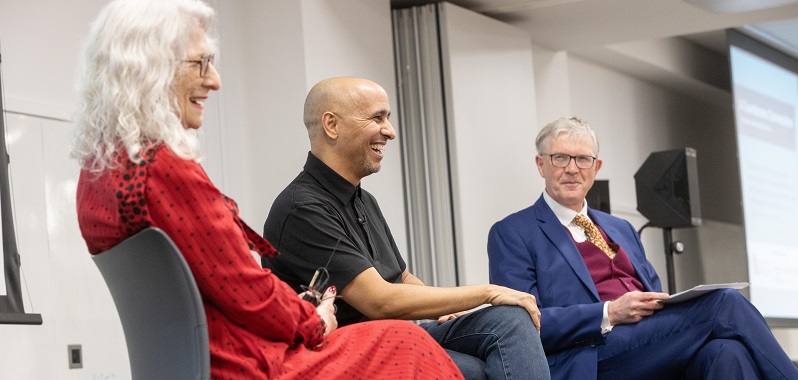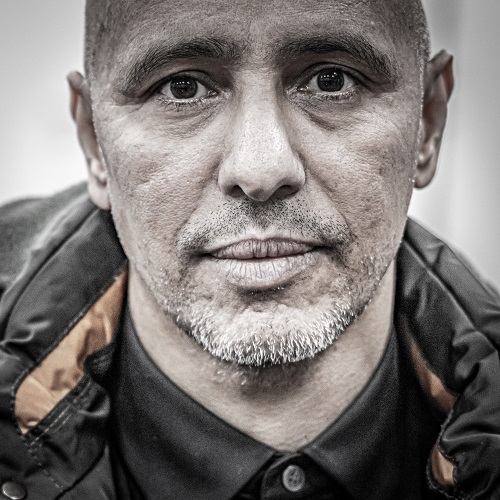Professor Sir Malcolm Evans, co-Director of HRIC and the former Chair of the UN’s Subcommittee on Prevention of Torture, opened proceedings acknowledging both his delight at the packed room and his distress of what the event marked.
"Tonight, is in its own way a shameful night as one that we are pleased to be celebrating in. It is shameful that Guantánamo still exists. What Guantánamo represents is indefinite detention without trial, which in itself is the highest degree odious. But if detention without trial is in the highest degree odious, torture and ill treatment of persons is universally condemned. It is, in fact, the most outlawed of all human rights commitments - and yet it persists."
Mohamedou was incarcerated without trial at the facility after being accused of involvement in planning the September 11 atrocities. He arrived in Guantánamo Bay in 2002 where he was then subjected to torture, including assault, being blasted with heavy metal music and strobe lighting, and deprived of sleep for 70 days. Mohamedou openly admits that he yessed every accusation his interrogators made. One of the key questions of the evening was, ‘Does torture work?’
"When I was under pain, I did not care about the punishment that would befall me. I only wanted them to stop the pain. The lie means freedom of thought because the torture stops. And then they came back and said, we want to put you on a polygraph. I was so scared because the polygraph would reveal the truth and the truth meant more pain. Every single time I was 100% acquitted. So, this is torture."
Mohamedou and Sir Malcolm were joined in conversation by Nancy Hollander, an internationally recognised criminal defense lawyer who represented Mohamedou at the Guantánamo Bay Naval Base, winning his freedom in 2016, after 11 years of pro bono representation. Nancy spoke of the role she played in securing Mohamedou’s freedom, and of her thoughts of the possibility of Guantánamo closing.
"It could be closed. It could be closed fast. Biden has the political will. But there has to be a mechanism. You have to put a mechanism in the government that works with these people. But nobody is willing do to it and so nobody cares. But he [Mohamedou] cares about these men. That’s what we’re trying to change. We want people to see them as individuals."
There are 39 inmates still in Guantánamo of which half have already been cleared for release, some as long ago as 2009. Mohamedou’s speaking tour aimed to put the spotlight back on the facility – and on those that have the power to close it. The Human Rights Implementation Centre is recognised as one of the leading organisations working on the prevention of torture and other forms of ill-treatment.
‘A Guantánamo Conversation’ took place on Thursday 3 March. You can watch again on YouTube.

